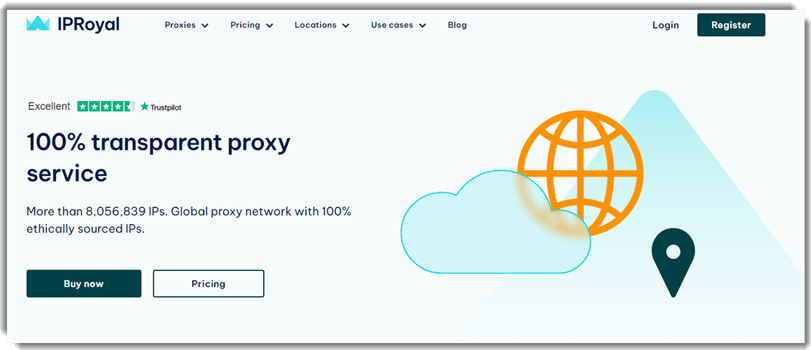Choosing Between VPNs and SOCKS 5 Proxies: Which is Best for Your Geo-Targeted Testing Needs

Introduction
In the world of website and mobile application development, testing is a critical phase. Ensuring that your new digital product works seamlessly across various locations is essential for its success. However, what if your access to certain regions is restricted due to geographical limitations? In such cases, you have two primary options: screen-sharing with friends from those locations or integrating your browser with either a VPN (Virtual Private Network) or a SOCKS 5 proxy. In this article, we will explore the differences between VPNs and SOCKS 5 proxies and help you choose the best option for your needs.
The Need for Geo-Targeted Testing
Testing your website or application in different regions is essential to understand its performance and accessibility. Whether you’re launching a new e-commerce platform, a social media app, or any online service, knowing how it functions in various locales is crucial for success. This testing allows you to analyze the potential reach of your product and identify any region-specific issues that may arise.
Options for Overcoming Geographical Restrictions
To test your product in regions where your access is restricted, you have two primary options. The first is to arrange screen-sharing sessions with friends or colleagues located in those regions. While this can work, it may not be the most efficient method, especially if you need to test in multiple locations. The second, more sophisticated option is to use either a VPN or a SOCKS 5 proxy to unlock internet traffic restrictions. Vclub
Understanding VPNs
A Virtual Private Network, or VPN, is a software or application that provides a secure connection to remote locations over the internet. VPNs are primarily known for their ability to access restricted websites, such as those on the dark web. They achieve this by establishing an encrypted virtual tunnel through which data packets travel securely. This encryption ensures that your online activities remain private and secure.
Businesses often use VPNs for testing their services. For example, a mobile app developer can deploy VPN software to place their browsing activity in a different country or state from their current location. This enables them to experience how their new app performs in geo-targeted areas.
Understanding SOCKS 5 Proxies
A SOCKS 5 proxy server functions in a manner similar to VPNs but with some differences. These proxies redirect web traffic through HTTP proxy servers. SOCKS stands for Secure Socket, highlighting its original intent to provide security. Just like VPNs, there are several places where you can purchase SOCKS 5 proxies. One notable provider in this space is Vclubshop, known for its cutting-edge SOCKS 5 proxy extensions that can reroute web traffic across multiple channels simultaneously.
Differences Between VPNs and SOCKS 5 Proxies
Speed
One of the primary distinctions between VPNs and SOCKS 5 proxies is speed. SOCKS 5 proxies are generally faster than VPNs. They allow you to navigate from one website to another with minimal lag. This is especially important for online entrepreneurs who prioritize website load speed. SOCKS 5 proxies excel in upload and download speeds, as well as responsiveness (ping time). They outperform not only VPNs but also regular proxies like HTTPs.
Safety
While SOCKS 5 proxies may offer superior speed, they trade some of it for safety. VPNs excel at encrypting data packets’ virtual pathways, which takes additional time and can result in slower load times. However, VPNs compensate for this by providing maximum online safety and privacy. It’s important to note that some VPN services engage in logging user activities, which can have privacy implications depending on your online behavior.
Efficiency
A VPN connection masks your local IP address while encrypting all internet traffic to and from your device. This adds an extra layer of privacy, making it appear as if your incoming traffic originates from a different region. In contrast, SOCKS 5 proxies are application-specific. They work only with the specific application you’re using them for. To maximize efficiency with SOCKS 5 proxies, you should activate the service on all relevant software you’re using.
Number of IPs Provided
VPNs and SOCKS 5 proxies also differ in the number of IP addresses they offer. VPNs typically provide a single IP address, which is secure but may require contacting the provider to change. This limitation can be problematic if you need multiple IPs for web scraping or creating multiple social media profiles. SOCKS 5 proxies often offer multiple IP addresses, reducing the risk of all your proxies being restricted from specific websites.
Choosing Between VPNs and SOCKS 5 Proxies
The choice between VPNs and SOCKS 5 proxies ultimately depends on your specific needs. If website load speed is paramount and you require multiple IPs, SOCKS 5 proxies may be the better choice. However, if you prioritize online safety and privacy and don’t mind slightly slower load times, a VPN could be the ideal solution. Consider your requirements and make an informed decision based on the differences outlined in this article.
Conclusion
In the realm of geo-targeted testing and online security, VPNs and SOCKS 5 proxies are valuable tools. Their suitability depends on your individual needs, whether it’s speed, safety, or IP address requirements. By understanding the differences between these technologies, you can make a well-informed choice that aligns with your goals.
